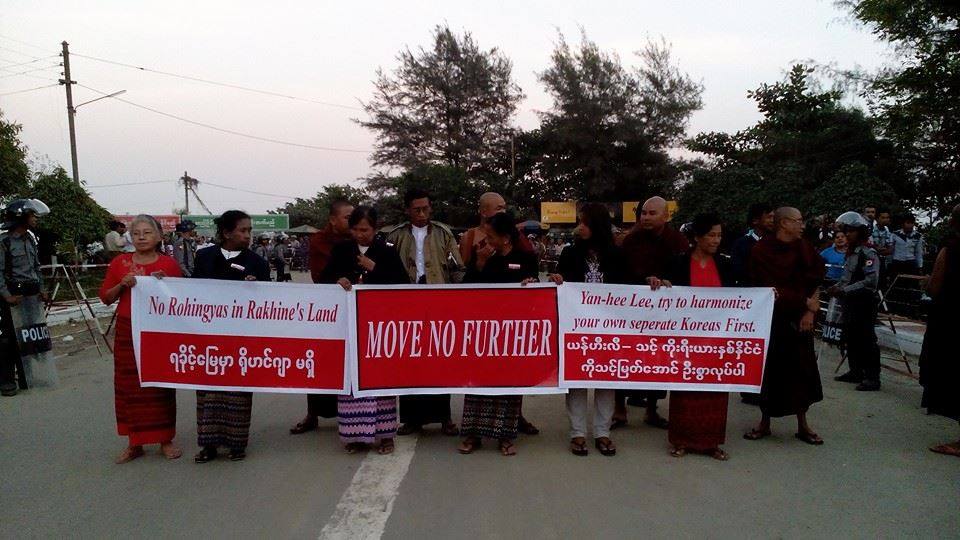The United Nations’ Special Human Rights Rapporteur to Burma Yanghee Lee met with MPs and community leaders in Myebon, Arakan State, on Friday to hear about the challenges for the co-existence of Buddhist and Muslim communities.
“Regarding challenges, we told her that trust is an important essence,” said Pe Than, a lower house MP from Myebon Township. “Co-existence only comes after trust-building, and the UN’s persistence with their call to accept the term Rohingya is detrimental to our citizenship verification programme.”
The UN General Assembly approved a resolution at the end of last year urging the Burmese government to provide full citizenship and the right to move about freely to Rohingya Muslims in Arakan State.
The Burmese government denies the existence of the ethnic group Rohingya, insisting that the people are “Bengalis” who migrated to Burma from neighbouring Bangladesh. The government has indicated it would consider citizenship for members of the community who self-identify as Bengali.
[related]
Pe Than said they urged Lee to help build understanding between the two communities rather than press the Rohingya identity issue.
Following her meeting with the Arakanese group, Lee visited Rohingya residents in a nearby displacement camp.
Zaw Zaw, a Muslim in the camp, said the residents told her of their hardships and unfulfilled promises on the part of the government.
“There are people in the camp who were awarded citizenship [after accepting the term Bengali], and we did this because the government promised to allow us to travel freely,” Zaw Zaw said. “But to date, we still cannot travel freely anywhere and continue to be confined in this 30-acre [4,000 sq.m.] camp.”
Yanghee Lee, who is visiting Burma for the second time, was met with protests by Arakanese nationalists when she landed at Sittwe airport on Thursday.
In September, Reuters reported that the Burmese government had announced that some 40 Rohingyas were among 209 displaced Muslims in Arakan State who accepted the term ‘Bengali’ and were granted full citizenship under the pilot citizenship-verification programme.



